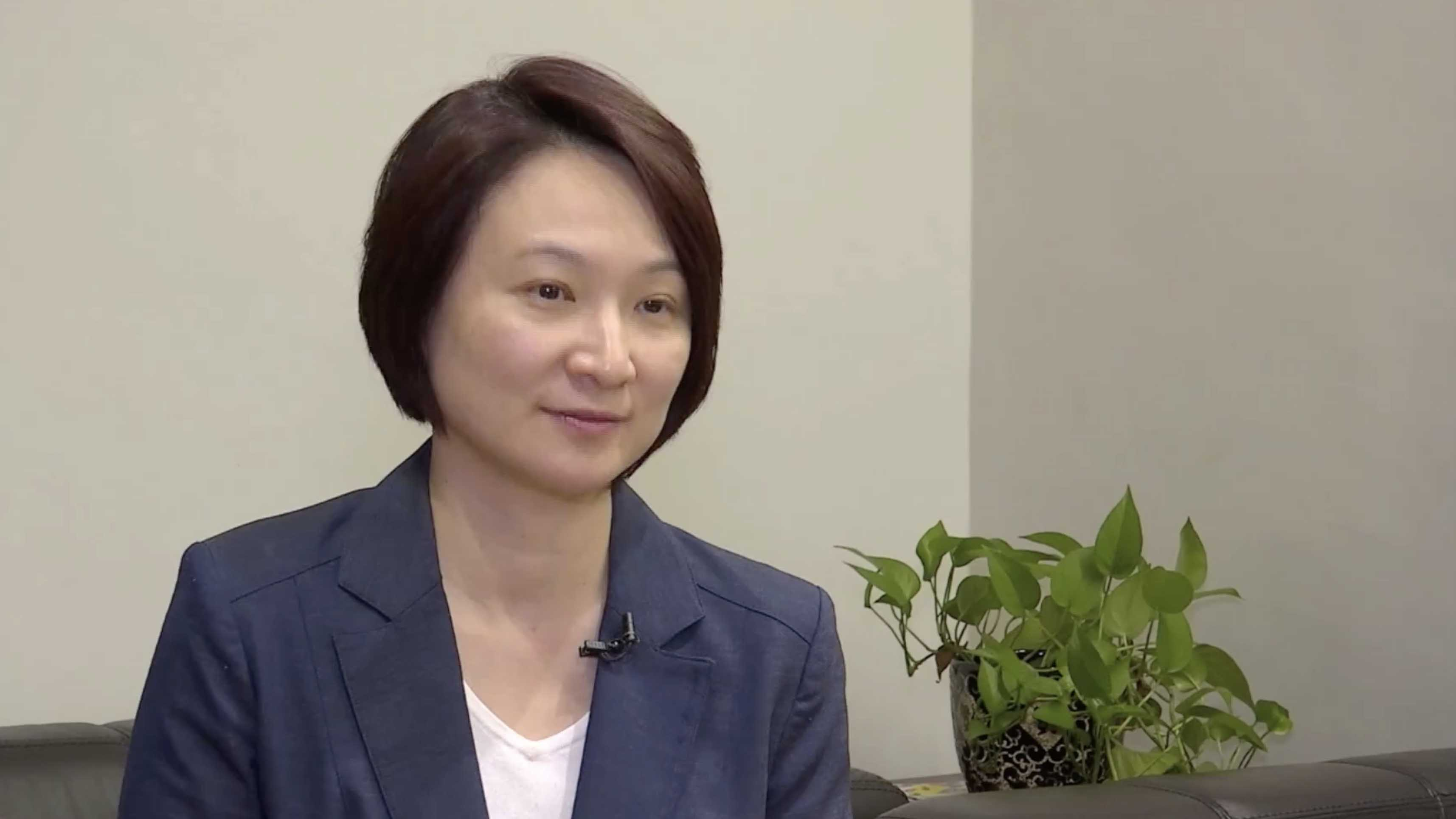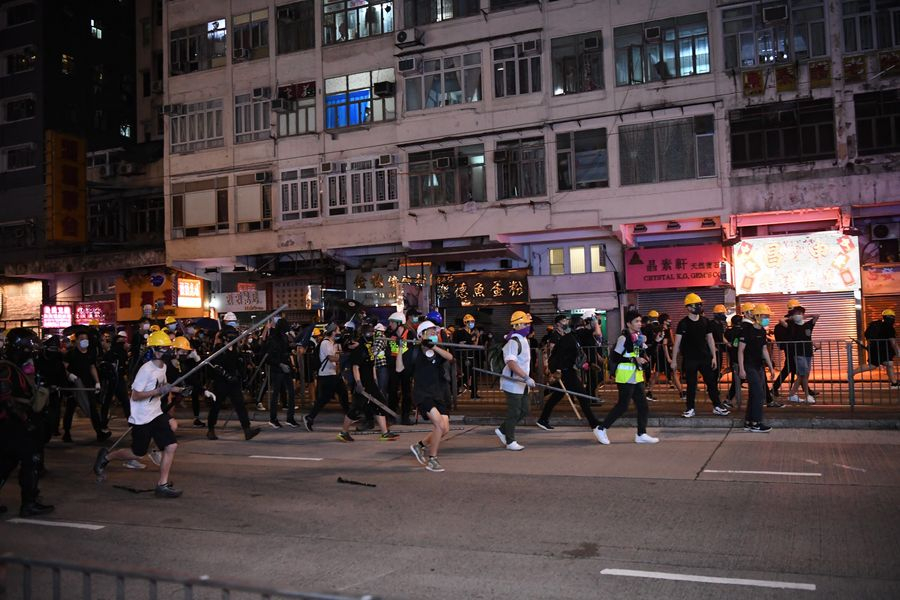02:45

Deaths, injuries, vandalism … these are all key words for the ongoing unrest in Hong Kong. I got assigned to cover the unrest in Hong Kong late August, and since then I've been flying back and forth between the Chinese Mainland and Hong Kong. I flew into the island again this week after spending over ten days covering the Second China International Import Expo.
While I was amazed by the dazzling imported goods that overseas brands tried so hard to attract attention during the trade fair in Shanghai, I was saddened at the same time by news about the deteriorating society in Hong Kong. Knowing I needed to get back to the island soon, I was terrified — seeing branches affiliated with the Chinese Mainland in Hong Kong burned, mandarin speaking people cornered and beaten up and also those young protesting on the street who got tear gassed or even shot. I asked myself why they cannot just stop the violence and take a step back to talk with the grown-ups? It hurts, wouldn't it — throwing punches and getting into a "fist fight"?
Escalated violence to mute different voices
I was somewhat relieved after getting off the plane and successfully arriving at my hotel. It has been a week-long protest, yet, there are online discussions to keep protests peaceful for the later half of the week, which was when I flew in. Traumas, wounds, and even a fatality have happened, however.
A 70-year-old cleaner died Thursday night after a brick fatally hit his head the day before during clashes between anti-government demonstrators and residents. According to Hong Kong police, they believed that the old man was just taking pictures of the scene and a protester deliberately threw the brick at the old man, and now it's a murder case.
Despite a few government agencies shared condolences, the pass of the 70-year-old did not make huge waves in Hong Kong. Some Hong Kong locals who lean towards those protestors told me that there might be two reasons why they did not tune in much. First, the man's death came fast leaving no time for much speculation, and the second reason, shockingly, is that the man was old. I do not want to associate agism with Hong Kong unrest, but there are just so many signs pointing to that.
A mother of two told me that she believes one thing that continues to tear the society apart is the generation gap. Different opinions with older people could drive young people to blindly follow things that go against it — for example, their parents. Young people took to the streets and spent more time with kins alike — reinforcing what they believe is right and others are wrong. A vicious cycle that is destroying and muting diverse voices. And violence is being used to destroy and to mute.
Starry Lee, the Chairwoman for the Democratic Alliance for Betterment and Progress of Hong Kong (DAB), told me that "over the past month, all these protestors have been doing the same thing, and that is to threaten the opinion leaders to not speak."

Violent radicals go after a police vehicle in North Point, south China's Hong Hong, August 5, 2019. /Xinhua Photo
Violent radicals go after a police vehicle in North Point, south China's Hong Hong, August 5, 2019. /Xinhua Photo
Financial hub loses its economic charms
Hong Kong has confirmed that the city's economy contracted for a second consecutive quarter — meeting the technical definition of a recession.
"The plunge in tourist arrivals was almost as damaging, together with negative contribution from private consumption expenditure, reflects disruption from protests and more generally weak consumer sentiment," said Ethan Wang, the head of Investment Strategy at Standard Chartered China.
He also shared that the bank expects Hong Kong GDP to contract 1.5 percent and 0.3 percent in 2019 and 2020, respectively.
I've told many about improved public sentiment last time I arrived in Hong Kong — over a month ago. Yet, the withdrawal of the controversial fugitive bill left many protestors unsatisfied and the anti-mask law failed to keep black-clad protestors at bay — by the time I left Hong Kong last time, the city's Causeway Bay dimmed its lights. Causeway Bay if not the most vibrant shopping destination in the city, it is still an important hub for fashion, food, and entertainment. But it was totally dark. On top of protestors' boycott movement, the city's paralyzed traffic forced many to stay at home.
Some say the five demands protestors have been chanting do not reflect much of what people really want. Prosperity and stability - a place to live and a job to feed - are what truly matter. Some argue that the stagnant city development pushed people to the street, but protests have been making the economy worse. Some argue that the government has not been listening to them, but the violence has been building up a defensive wall.
I've heard many discussing that there are in fact conflicts within radical protestors. Among those who occupied the Chinese University of Hong Kong and brought violence to university campuses forcing schools to shut this week, many are voicing their support to not disrupt the scheduled district council elections happening next week while others seem to try to use all these violent means to stall it.
While a coin has two sides, in Hong Kong, society has been chopped up to pieces.